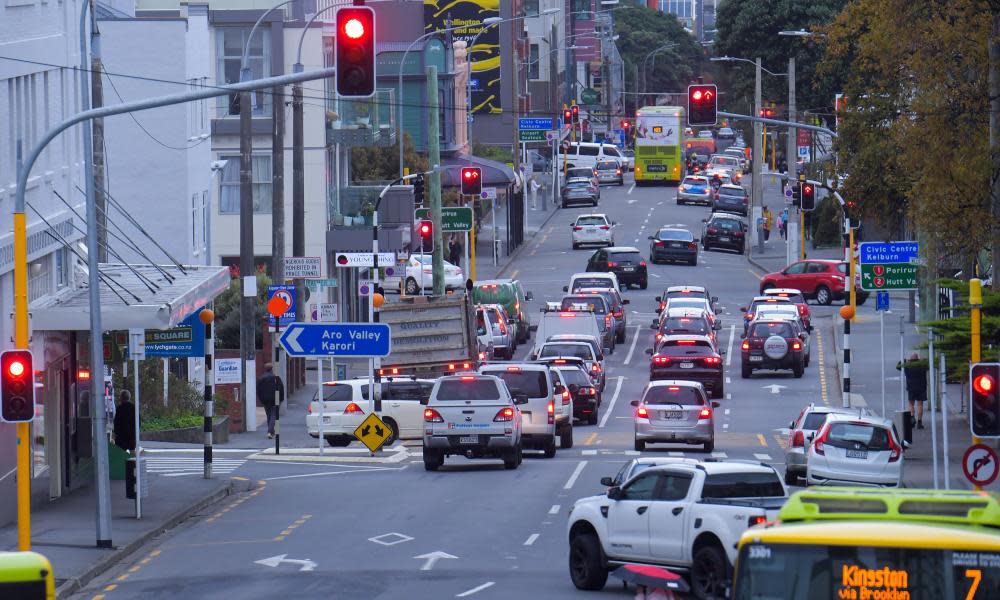‘Even more attractive’: New Zealand capital Wellington to ban cars from ‘Golden Mile’

The main thoroughfare in Wellington, New Zealand’s capital, is set to become car-free by 2023, after local authorities opted for the most ambitious reform option available to them.
Pavements in Wellington’s “Golden Mile” will grow in size by up to 75%, cyclists and pedestrians will be prioritised and two bus lanes – one in each direction – will allow continued public transport. It is expected to cost between NZ$52m and NZ$79m.
Wellington mayor Andy Foster said the decision would “future-proof our city and make it even more attractive going forward”.
Related: ‘People have an over-attachment to their cars’: where is Auckland transport going?
Tamatha Paul, a city councillor who represents many of Wellington’s younger and more progressive residents, said she “totally supports” the plan but said it must be accompanied by other projects to “transform our inner city”.
Three options were open to local authorities. The decision in favour of the car-free plan came after a patchwork of groups, including environmental advocates Generation Zero and liveability advocates Talk Wellington, urged residents last year to submit in support of it to decision-makers. Of the 2,000 public submissions made, a decisive majority favoured the car-free option.
It is, however, opposed by some in Wellington’s retail community, who worry about reduced patronage and are concerned by the announcement’s lack of detail.
“There are hundreds of businesses along the Golden Mile that are going to be affected, but no information yet on service and delivery vehicle access, taxi stands, or how traffic flows may operate,” said Simon Arcus, chief executive of the city’s Chamber of Commerce.
Foster promised local authorities he would work closely with the business community as the plan’s details were ironed out. “There’s always going to be pain with any change,” he acknowledged. “Our job is to minimise that pain.”
Foster has also been under pressure over reports of violent and sexual crime in the inner-city. He intends to use the car-free plan to overhaul those spaces.
The plan is part of a wider NZ$6.4 billion transportation project called Let’s Get Wellington Moving, which has been under heavy criticism recently for delays and cost blow-outs.
According to Daran Ponter, one of the project’s key figures and chair of Greater Wellington Regional Council, “We’re now seeing the first tangible results of Let’s Get Wellington Moving, which has been gestating longer than anyone could have expected. The rubber is finally hitting the road.”

 Yahoo Movies
Yahoo Movies 
